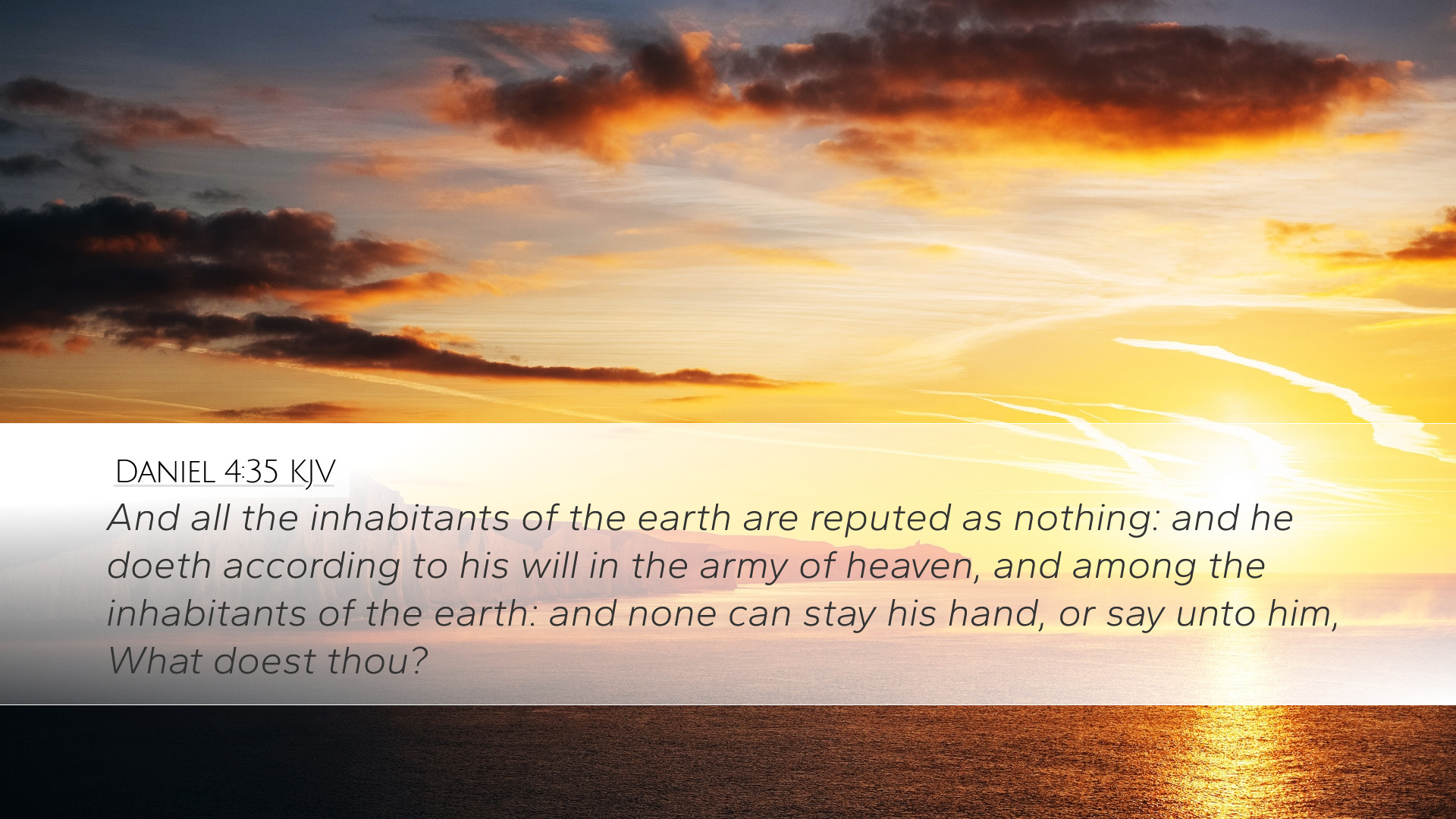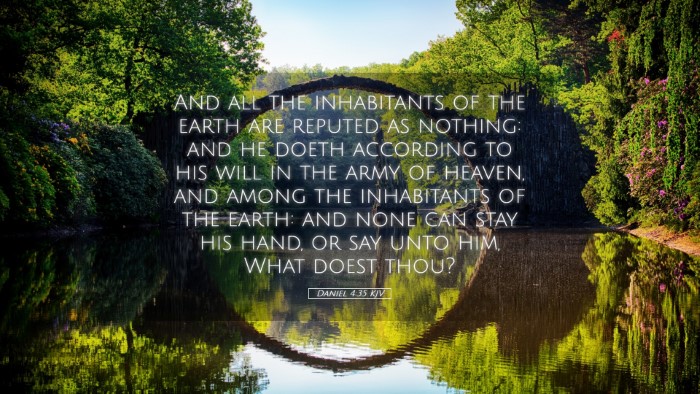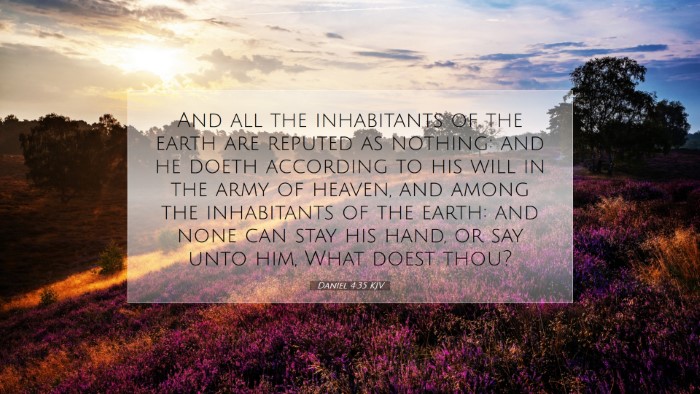Commentary on Daniel 4:35
Verse: "And all the inhabitants of the earth are reputed as nothing: and he doeth according to his will in the army of heaven, and among the inhabitants of the earth: and none can stay his hand, or say unto him, What doest thou?"
Overview of Daniel 4:35
This verse forms a part of King Nebuchadnezzar's proclamation following his divine restoration after a period of madness inflicted by God due to his pride. It presents profound insights into God’s sovereignty and the insignificance of humanity in comparison to divine majesty. As such, it serves as a reminder of God’s ultimate authority over all creation, emphasizing that He is not only sovereign in the heavens but also over the kingdoms of men.
Theology of Divine Sovereignty
Albert Barnes notes that this verse serves as a key revelation of the omnipotence of God. Every being on earth is “reputed as nothing,” which challenges human arrogance and brings to light our dependence on divine authority. God's will governs both the spiritual realm (the army of heaven) and earthly affairs.
Matthew Henry reflects on the significance of recognizing God’s sovereign will: “He doeth according to his will.” This facet affirms that all earthly events, no matter how chaotic or tumultuous, fall within the providential oversight of God, who orchestrates history for His purposes.
Human Insignificance
The phrase “all the inhabitants of the earth are reputed as nothing” is especially striking. Adam Clarke emphasizes that this should remind humanity of its transitory nature. In moments of pride, we may overestimate ourselves, but in the grand scope of God's eternal plan, we must recognize our limitation and reliance on divine grace.
- Humility before God: The acknowledgment of human frailty should inspire humility amongst pastors and laypersons alike.
- Our place in God’s creation: Understanding that we are part of a grand design orchestrated by a sovereign God fosters a sense of purpose.
The Will of God and Human Response
Matthew Henry asserts that God’s ways are incomprehensible to humanity. “None can stay his hand, or say unto him, What doest thou?” speaks to God's ultimate authority. While we often seek to question divine actions, this verse insists that God's will prevails regardless of human inquiry.
This raises important theological questions for scholars and pastors:
- How do we respond to the Divine will? Recognizing God's sovereignty invites a posture of trust and reverence.
- What is our role in relation to God’s plan? Understanding that our actions are limited yet significant within God’s overarching plan encourages humility and service.
Application for Ministry
For pastors, the message conveyed in Daniel 4:35 is crucial for ministry. It encourages a teaching of humility, reverence, and awe of God’s greatness. As Albert Barnes suggests, we must remind our congregations regularly about the distinction between the divine and human realms, helping them to recognize their dependence on God.
Additionally, this verse provides a powerful platform for addressing the complex questions surrounding suffering and divine providence. Matthew Henry suggests that a true grasp of God’s sovereignty equips believers to face life's uncertainties with faith and courage.
Conclusion
Daniel 4:35 encapsulates profound theological truths about God's sovereignty and human frailty. Engaging with this scripture encourages believers—whether pastors, theologians, or laypersons—to cultivate an attitude of humility and reverence. The recognition that God operates beyond our understanding should inspire trust and submission for believers while serving as a reminder of the might and majesty of the Creator.


